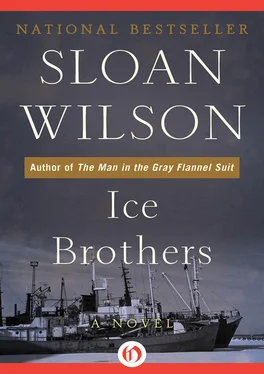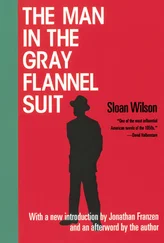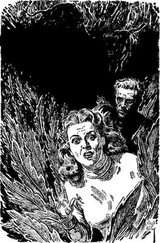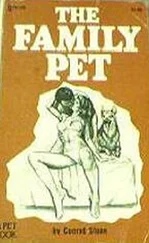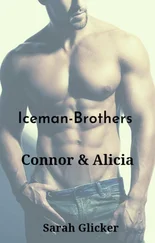“If we get another few days of calm,” Seth observed to Paul, “I think that Mr. Green is going to know everything in the whole world. He’s apt to be giving the skipper himself lessons before long.”
The wind-polished, rust-colored mountains of Greenland, too gale-swept to hold earth or much snow, never mind trees, rose in tiers to the ice cap, which was hidden by clouds thousands of feet above the sea. This coast was spectacular but changed so little as they paralleled it that the men of the Arluk soon began to take it as much for granted as they had the sea. Only Seth Farmer stood on the wing of the bridge studying it, even when he was off watch. As Mowrey had surmised, Seth was not much good with chart navigation, but he had almost a photographic memory when it came to coastlines. His boast was that if he had been to a place once, he could always get back.
When Paul came on watch at four in the morning of the third day since entering the ice pack, he found that they were well into Narsarssuak Fjord. He had had no clear idea of what a fjord was and was astonished to find the ships following what appeared to be a narrow river in the depths of a grand canyon. Upon studying the chart he realized that the fjord was several miles wide, but the mountains towered so high on all sides of it that they dwarfed everything, making even the big troopship look like a tiny toy lost in the Arctic wilderness.
In most places the mountains rose almost vertically from the fjord. There were a few bays surrounded by gently sloping land, some with low points which separated into groups of islands as they approached. Near one of these they saw a flotilla of kayaks heading toward them, their ivory-tipped double-ended paddles flashing in the sun.
“Eskies!” Mowrey said, ordering the engine to be stopped. “I was afraid the damn army had chased them all away.”
Three of the kayaks approached the trawler, while the others headed for the Dorchester . The delicate craft looked exactly like pictures which Nathan and Paul had seen in the geography books of their youth, and so did the occupants, small, broad-faced Oriental-looking men in parkas made of skin and fur. They grinned broadly as they approached the Arluk . On the foredecks of their kayaks they carried ivory-tipped harpoons, inflated bladders to float their prey, and one of them had a dead seal about four feet long. Standing on the well deck Mowrey shouted at them and they looked astonished when they realized that he was using a few words of their language. Their grins growing even broader, they came almost close enough to touch the ship.
“Cookie!” Mowrey yelled. “Bring up some tins of coffee, tea, sugar, milk and Spam.”
Soon a busy trading session was in progress. In exchange for the food, the Eskimos handed up ivory beads, walrus tusks, a spiraled narwhale tusk and, at Mowrey’s insistence, their seal.
“Good as young beef any day,” Mowrey said as he tossed the seal to the deck at Cookie’s feet. “Cook it like steak and save me the liver.”
“Do you expect me to butcher that thing?” Cookie asked recoiling in horror.
“I’ll butcher it for you. Save all the ivory you can get, boys. The army and navy will give you cash or booze for it.”
When the crew produced cartons of cigarettes, the Eskimos found more walrus tusks in the bottom of their kayaks. Looking astern, Paul saw that the men on the Dorchester were lowering buckets on long ropes to conduct their trading.
Finally the Eskimos spread out empty hands to show that they had no more to sell. Mowrey smiled and said, “Ping-ping?”
Immediately they all broke into gales of laughter which was so infectious that the men aboard the ship joined in.
“Ping-ping, ping-ping!” they all repeated in delight. Then, pointing toward the head of the fjord where the ships were heading, the oldest of the Eskimos, a man with a wrinkled face and brown stubs for teeth, said, “No ping-ping.” Extending his arm toward the islands abeam, he grinned and said, “Ping-ping, all time ping-ping!”
Everyone laughed but Mowrey.
“I thought the army would move them miles from the big base,” he said. “I bet the brass would hang us higher than the moon if we went ashore at them islands. We ain’t going to have no fun until we get about four-hundred miles north of here.”
Giving Paul the easy job of piloting the ship up the unobstructed fjord, Mowrey tied the tail of the seal to the cargo boom, got a sharp knife from Cookie, and proceeded to butcher it. Rolling up his sleeves, he attacked the seal as though it were a mortal enemy, but his big hands were expert enough to roll off the skin as though it were a garment. Newly relieved from the helm, Guns watched him with admiration.
“Damn, skipper! Can you strip an Eskie girl that easy?”
“There ain’t nothing an Eskie girl can’t do without stripping.”
“You reckon we’re really going to find some Eskie girls?”
“If they ever let us get away from these bases, we will. Course, I never had a crew this big up here. There were only about a dozen of us on the vessels, and a lot of them were Christers who didn’t even go ashore.”
“Damn,” Guns said, “if I don’t find me a woman of some kind pretty soon, I’m liable to take after one of them seals. That red meat looks pretty good.”
“You wouldn’t be the first to fuck a seal,” Mowrey said as he cut a huge steak off a flank. “You better make sure the bugger is dead, though. They can bite like crocodiles. I had a friend who put a bag over the head of one, and she bit right through it. It’s a hell of a lot easier to fuck a holy roller virgin than it is a seal.”
Nathan, who had been half listening to this while he admired the scenery, wearily went below and picked up one of his books on Greenland. “The Eskimos,” he read, “are a gentle people who need protection from white men.”
CHAPTER 16
The Dorchester moored at a new wharf to unload her troops. The Arluk moored nearby. The army base and airfield did nothing to satisfy any curiosity the men of the Arluk had about the mysteries of the north. The rows of Quonset huts were so familiar that for a moment, Paul wondered whether he had ever left Argentia. This thought reminded him of the poker hands he had won and he wondered whether they played cards at the officers’ club here.
“Captain, can I go ashore for a few hours tonight?” he asked Mowrey shortly after they had moored at a long, low wharf beside a Norwegian freighter.
“You can after you see if there’s any mail for the men, after you discharge our cargo and load anything they got waiting for us here. I’m going ashore to see when the hell they’re going to let us start north.”
Much to the disappointment of all hands, no mail was waiting for anyone aboard the Arluk , despite the fact that letters from the States came in every day aboard planes. Boats, who had left Boston while his wife was momentarily expecting a baby, swore softly.
“I bet Headquarters has forgot all about us,” he said. “Talk about the legion of forgotten men!”
“As soon as I can get ashore I’ll try to straighten things out,” Paul said. “Let’s get this hold unloaded.”
Nathan checked packing cases off an invoice as their cargo boom swung them ashore to waiting trucks. Most of their cargo consisted of bales of winter clothing and boxes of radio equipment, the lightness of which had contributed to the instability of the ship. Near the bottom of the hold were several boxes of spare parts for radar sets at the airbase.
“Damn, I don’t think these would have fit Hansen’s old set, but I sure would have liked to have tried to work something out for him,” Nathan said. “To think I was sitting here on all this equipment, while that poor guy goes off with a busted set.”
Читать дальше
